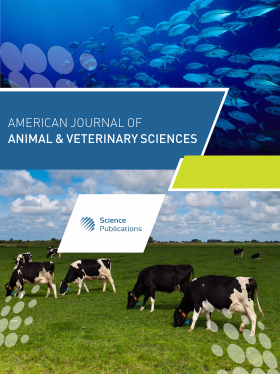Comparison of Isoflurane and Sevoflurane Anesthesia in Holstein Calves for Placement of Portal and Jugular Vein Cannulas
- 1 Auburn University, United States
Abstract
Isoflurane and sevoflurane are the two most commonly used inhalation anesthetics in veterinary medicine today. This study compared the anesthetic effects between isoflurane and sevoflurane in 17 calves undergoing surgery for placement of portal and jugular vein cannulas. Using a randomized control trial, calves were assigned to receive sevoflurane or isoflurane. Anesthesia was induced with xylazine and ketamine then maintained with the assigned inhalation anesthetic. Parameters for heart rate, respiratory rate, indirect blood pressures, oxygen hemoglobin saturation and end-tidal carbon dioxide were monitored and recorded during surgery. The anesthetic concentrations of the vaporizers were adjusted according to the calves’ responses, e.g., blood pressure, eye position, respiratory and heart rate, to surgical stimulation. Upon discontinuation of the inhalation anesthetic, calves were placed in sternal recumbency and recovery variables including time to extubation, time to first movement, attempts to stand and time to standing were observed and recorded. Statistical analysis was performed using a two-sample t-test on the recorded variables. There were no statistical differences between isoflurane and sevoflurane for any of the parameters recorded during anesthetic maintenance or recovery. The results of this study showed a faster time to first movement and extubation, 3.38±1.85 min and 11.75±3.73 min for sevoflurane compared to 7.56±5.34 min and 15.56±8.69 min for isoflurane, respectively. Attempts to stand were 3.00±2.14 for sevoflurane and 3.22±1.79 for isoflurane. Though the time to standing during recovery was not statistically different between anesthetics, the values did indicate a quicker trend of recovery from sevoflurane. Both inhalation anesthetics produced comparable anesthetic qualities and there were no statistical differences between the parameters recorded during maintenance of anesthesia. On the basis of the reported results, sevoflurane and isoflurane are suitable inhalation anesthetics for use in calves. However, present cost of sevoflurane is a limiting factor for its use in food animals.
DOI: https://doi.org/10.3844/ajavsp.2013.1.7

- 6,534 Views
- 7,746 Downloads
- 10 Citations
Download
Keywords
- Anesthesia
- Sevoflurane
- Isoflurane
- Inhalation
- Cattle
